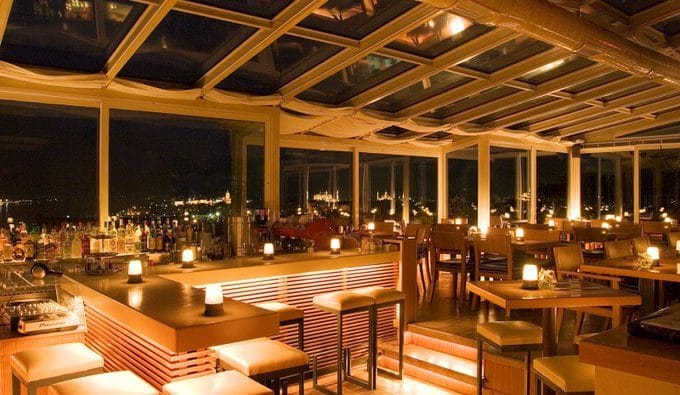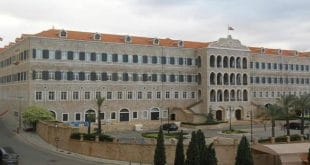**الأزمة الأسوأ التي تمر بها المطاعم في لبنان**
تعاني العاصمة اللبنانية، بيروت، من شلل تام في حركة قطاع المطاعم. ورغم أن عام 2023 شهد نمواً ملحوظاً مع افتتاح حوالي 300 مطعم ومقهى جديد، إلا أن الأحداث الأخيرة قد قلبت المشهد رأسًا على عقب، مما أدى إلى خسائر فادحة بنسبة تصل إلى 90% في حركة هذا القطاع. فقد ألغى أصحاب المطاعم مشاريعهم التي كانت تتضمن افتتاح 50 مطعماً ومقهىً، وقرروا تعليق كافة الأنشطة المرتبطة بهذا المجال.
بعض المحلات كانت على وشك الافتتاح، وقد انتهت من تجهيز ديكوراتها. وقد تكبد هؤلاء أصحاب المحلات خسائر ضخمة، حيث اضطر البعض للعودة إلى بلدانهم انتظارًا للفرج، بينما فضل آخرون التمهل وترك محلاتهم من دون واجهات زجاجية وأثاث لتحديد خسائرهم لاحقًا.
وفي حديث خاص لـ«الشرق الأوسط»، يعبر نائب رئيس نقابة المطاعم والملاهي والمقاهي، خالد نزها، عن الوضع الراهن قائلاً: «لا حاجة للتحدث عن حالتنا البائسة، فالمشهد يتحدث عن نفسه. بيروت تشهد ركوداً كاملاً، إنها الأزمة الأسوأ التي نمر بها في قطاع المطاعم».
ويضيف نزها أن بيروت تفتقد لروادها وزوارها، حيث تبقى محلات السناك وخدمات التوصيل تعمل جزئيًا لتلبية احتياجات النازحين واللبنانيين الذين يخافون من الخروج من منازلهم. كما يشير إلى أن بعض تلك المحلات قد فتحت أبوابها لإيواء النازحين دون فرض أي شيء عليهم، بل من باب المساعدة.
وفيما يتعلق بالوضع المالي، يؤكد نزها أنهم لا يملكون أرقامًا دقيقة عن خسائرهم، لكن يمكن القول إن هناك تراجعًا كبيرًا في حركة المطاعم. كما أن تأمين رواتب الموظفين هو الهم الأكبر، لأنهم يعانون من تحديات كبيرة، وبعضهم يواجه البطالة والتهجير في الوقت نفسه.
وعند التجول في وسط بيروت اليوم، حيث كانت تعجّ بالمطاعم والحياة، سيصدمك الصمت الذي يسيطر عليها، مع وجود مطاعم مغلقة وقطاع مشلول.
ويؤكد نزها أن خسائرهم كبيرة جداً، ولكنهم يأملون في إحياء هذا القطاع مرة أخرى بعد انتهاء الأزمة. وفي الفترة الماضية، كان المغترب اللبناني يقدم العون للقطاع، ونتمنى أن يعود أصحاب المشاريع الذين غادروا. وعلينا أن نعمل على تجاوز هذه المرحلة بأقل خسائر ممكنة.
من جانبه، يلتزم نقيب أصحاب المطاعم، طوني الرامي، الصمت، حيث يعبر عن حزنه لما وصل إليه القطاع الذي شهد تغييرات مستمرة بين أزمة وأخرى. ويشير نزها إلى أن معظم المطاعم والمقاهي قد أغلقت، وحتى المناطق البعيدة عن موقع الصواريخ تأثرت بفقدان الزبائن.
وفي المقابل، تشهد بعض المناطق البعيدة عن بيروت حالة من النشاط الطبيعي. حيث تكتظ المطاعم والمقاهي بالزبائن في مناطق مثل المتن الساحلي وكسروان وجبيل. ويقول بيار، أحد مشرفي مطعم شعبي في برمانا: «في بداية الحرب، شهدنا تراجعًا ملحوظًا، لكن الوضع تغير اليوم وعاد المطعم ليشهد حركة طبيعية. بعض الزبائن يأتون من بيروت للتمتع بأجواء هادئة تساعدهم على نسيان قساوة الحرب ولو لفترة قصيرة».
وبشأن نقص المواد الغذائية، يختتم بيار: «لا، لا نواجه أي نقص. المواد متاحة وننتظر الأمل للعودة للعمل بشكل كامل».
المصدر: فيفيان حداد – الشرق الأوسط
**The Worst Crisis Facing Restaurants in Lebanon**
Beirut, the capital of Lebanon, is experiencing a complete shutdown in its restaurant sector. Although 2023 saw significant growth with around 300 new restaurants and cafes opening, recent events have drastically altered this landscape, leading to staggering losses of up to 90% in business activity. Owners of restaurants that were expected to open 50 establishments have canceled their projects, opting instead to suspend all related activities.
Some of these establishments were on the brink of opening, having completed their decor work. These owners have suffered millions of dollars in losses, with some returning to their home countries in hopes of better times, while others decided to take their time, leaving their premises without glass facades and furniture to assess their losses later.
In an exclusive interview with *Asharq Al-Awsat*, Khaled Nuzha, Vice President of the Restaurants, Nightclubs, and Cafes Syndicate, summarizes the situation: “There’s no need to discuss our dire state; the scene speaks for itself. Beirut is desolate, and there is no restaurant activity; this is the worst crisis we’ve ever faced in the restaurant sector.”
Nuzha points out that Beirut is currently devoid of its visitors and patrons, with only snack shops and delivery services remaining partially operational to meet the needs of displaced individuals and Lebanese citizens afraid to leave their homes. He also notes that some of these shops opened their doors to shelter the displaced voluntarily, showing a sense of community support.
Regarding the financial impact, Nuzha states that they do not have specific figures on their losses but acknowledges that the restaurant sector is facing a tremendous decline. The main concern now is to ensure the salaries of employees, who are currently experiencing significant hardships, with some facing both unemployment and displacement.
If you take a stroll through downtown Beirut today, where it once buzzed with restaurants and nightlife, you will be struck by the overwhelming silence and the many closed establishments marking this challenging phase.
Nuzha confirms, “We recognize that our losses are enormous, but we hope to revive this sector once again. Just as the Lebanese expatriates lent a helping hand in the past, we hope that those who left will return after the war. During previous crises, some had to sell or mortgage their properties to support the revival of the sector. We aim to get through this phase with minimal losses.”
Meanwhile, Tony Rami, the President of the Restaurant Owners Syndicate, remains silent and does not respond to phone calls, expressing sorrow over the state of a sector that has seen continuous changes between crises. Nuzha comments, “Most establishments, including restaurants and rooftops, have closed down. Even areas somewhat distant from the missile impact sites have lost their clientele. Areas like Hamra, Verdun, Badaro, and Mar Mikhael are living in caution with no restaurant activity.”
Conversely, some areas further from Beirut are experiencing a normal atmosphere. In coastal Metn and its heights, as well as in Kesrouan and Jbeil, restaurants and cafes are bustling with customers throughout the day. Pierre, a supervisor at a popular restaurant in Brumana, states, “At the beginning of the war, we saw a significant drop in customers, which was already preceded by a lull due to the end of the summer season. Today, the scene has changed entirely, and the restaurant is witnessing somewhat of a normal flow of customers. Some patrons even come from Beirut to enjoy a quiet atmosphere that allows them to forget the harshness of war, even for a few hours.”
Regarding whether the restaurant sector is facing a shortage of food supplies and ingredients, he concludes: “Not at all; we maintain the same pace in this regard. The halt in operations for many cafes and restaurants eliminates this possibility. Ingredients are available, and we are waiting for signs of hope to be implemented across all restaurants, not just in certain areas.”
translated by economyscopes team
 سكوبات عالمية إقتصادية – EconomyScopes إجعل موقعنا خيارك ومصدرك الأنسب للأخبار الإقتصادية المحلية والعربية والعالمية على أنواعها بالإضافة الى نشر مجموعة لا بأس بها من فرص العمل في لبنان والشرق الأوسط والعالم
سكوبات عالمية إقتصادية – EconomyScopes إجعل موقعنا خيارك ومصدرك الأنسب للأخبار الإقتصادية المحلية والعربية والعالمية على أنواعها بالإضافة الى نشر مجموعة لا بأس بها من فرص العمل في لبنان والشرق الأوسط والعالم




